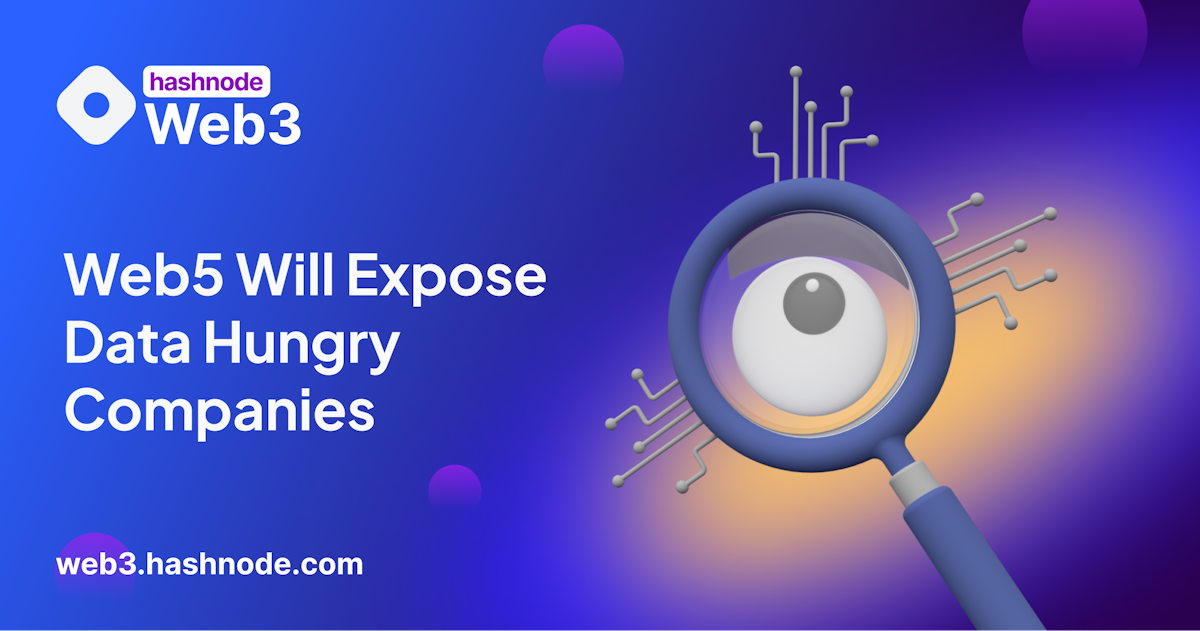Former Twitter CEO, Jack Dorsey, announced that his business, TBD, will be embarking on creating web5 — an extra decentralized web platform.
The next generation of the web will lay heavy stress on identity and personal data, thus exposing the companies that only want our data for their own personal gain.
Jack Dorsey said, “this will likely be our most important contribution to the internet. proud of the team.”
First Off, What Is Web5?
Most people are familiar with the first three iterations of the web. If you’re not, here is a quick recap:
Web1: Static and basic web pages
Web2: Social media, dynamic content, and targeted advertising
Web3: Built on the blockchain, digital ownership, and run by DAOs
Web5 is like web3 but on steroids. A key ethos in the web3 space was decentralization, owning your data, and a consumer-first mentality.
At first glance, you may think that these are the exact same ideologies as web5… and I’d agree with you.
This next evolution will take a web3 concept in decentralized identifiers (DIDs), and use it as a core principle.
Alongside decentralized web nodes, as well as self-sovereign identity service, and SDK. Oh yeah, and it’ll use Bitcoin.
It seems a lot of the differences between web3 and web5 are architectural, and in reality, they share more similarities than differences.
The main difference that I see for the layman is that apparently, there will be no tokens for people to use to invest in the space — no 10x gains for early web5 adopters then.
However, I want to focus on the key role DIDs will play in the evolution of the internet. Web5 promises to make this the centerpiece of modern society, and I think that’ll help us fight the war of data ownership we’re currently in.
How Will DIDs Work?
Decentralized identities are an identity and access management (IAM) tool that will allow individuals to have control of their data.
Your DID would hold the information to your name, email address, birth certificate, degrees, and more.
Just like with crypto, your DID will be held in a digital wallet that’s accessed using a set of keys, and your information will be stored on a distributed network of computers (or blockchain).
The immediate benefit of this is that it helps prevent fraud, as parts of your DID are impossible to fake or steal.
Such as, if you graduate from university, you’ll send your wallet address to your school before they sign it with their private key.
This is verifiable proof that you actually achieved the grade(s) you claim.
When you apply to a job, you can simply allow them access to see this credential and, boom, they know you have a degree.
We’ve covered DIDs in more detail here.
Owning Your Data
However, it doesn’t stop there. Web5 sees a future where DIDs will stop big corporations from being the leeches they currently are.
Companies like Facebook, for example, earn up to 670 GBP a year per individual selling data.
What does it even mean when a company sells your data? Good question.
Companies will purchase your data to make predictions about demographics that you’re a part of.
Such as, teenage boys in the US possibly being interested in the new Call of Duty game. This can end up being exploitative to the consumer and only beneficial to the company selling adverts.
Alternatively, companies can use your data to further their products by creating more content for these Call of Duty teenage boys or conducting research that helps the company better serve their users.
Currently, companies have free reign to do whatever they like with your data — for good or evil — all you can do is sit back and take it.

But, How Will DIDs Expose Data Hungry Companies?
Currently, only websites you’ve explicitly consented to or malicious data harvesting apps can sell your data.
Web5 and DIDs will enable a future where they aren’t the data broker; instead, the individual owns their data and can consensually give it away (or take it back).
Imagine a world where instead…
Read More: web3.hashnode.com









 Bitcoin
Bitcoin  Ethereum
Ethereum  Tether
Tether  XRP
XRP  Solana
Solana  Dogecoin
Dogecoin  USDC
USDC  Lido Staked Ether
Lido Staked Ether  Cardano
Cardano  TRON
TRON  Avalanche
Avalanche  Wrapped stETH
Wrapped stETH  Chainlink
Chainlink  Toncoin
Toncoin  Sui
Sui  Wrapped Bitcoin
Wrapped Bitcoin  Shiba Inu
Shiba Inu  Hyperliquid
Hyperliquid  Stellar
Stellar  Polkadot
Polkadot  Hedera
Hedera  WETH
WETH  Bitcoin Cash
Bitcoin Cash  LEO Token
LEO Token  Uniswap
Uniswap  Litecoin
Litecoin  Pepe
Pepe  Wrapped eETH
Wrapped eETH  NEAR Protocol
NEAR Protocol  Ethena USDe
Ethena USDe  USDS
USDS  Aptos
Aptos  Internet Computer
Internet Computer  Aave
Aave  Cronos
Cronos  POL (ex-MATIC)
POL (ex-MATIC)  Ethereum Classic
Ethereum Classic  Mantle
Mantle  Render
Render  Monero
Monero  WhiteBIT Coin
WhiteBIT Coin  Dai
Dai  MANTRA
MANTRA  Bittensor
Bittensor  Artificial Superintelligence Alliance
Artificial Superintelligence Alliance  Arbitrum
Arbitrum  Ethena
Ethena